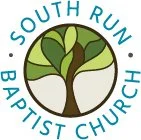Philemon is one of the shortest books in the Bible, and for that reason, it is easy to read in one sitting. And while it doesn't contain a theology of the cross, like Romans or Galatians, and it doesn't contain a theology of the church, like Ephesians, it is a wonderful example of theology-in-action. It is lived theology. It is a theology of the cross or a theology of the church as lived out in the lives of Paul, Philemon, and Onesimus. Let's take a look!
Philemon: Round 2
Philemon is one of the shortest books in the Bible, and for that reason, it is easy to read in one sitting. And while it doesn't contain a theology of the cross, like Romans or Galatians, and it doesn't contain a theology of the church, like Ephesians, it is a wonderful example of theology-in-action. It is lived theology. It is a theology of the cross or a theology of the church as lived out in the lives of Paul, Philemon, and Onesimus. Let's take a loo
Philemon
Philemon is one of the shortest books in the Bible, and for that reason, it is easy to read in one sitting. And while it doesn't contain a theology of the cross, like Romans or Galatians, and it doesn't contain a theology of the church, like Ephesians, it is a wonderful example of theology-in-action. It is lived theology. It is a theology of the cross or a theology of the church as lived out in the lives of Paul, Philemon, and Onesimus. Let's take a look!
Invaluable
Perhaps because we are products of our hyper-individualistic culture, we have a habit of turning the gospel into something individualistic. It goes something like this: the gospel is about how I can get to heaven, and how you can do the same. This, however, does not begin to do justice to what the gospel calls us to. As Jesus preaches over and over, he is summoning us into a “kingdom,” or community, or a new way of living together. When the church is launched in the first century, it is like a laboratory for living out kingdom lives here and now. With this in mind, let’s take another look at our core values at SRBC and how they invite us to participate in the kingdom in the here and now as we await its fulfilment in the age to come.
This Is Us
Every church is unique, just as every individual is unique, every marriage is unique, and every family is unique. There is no doubt that all churches should share some common goals and doctrines and practices, and these commonalities unite us as one body of Christ. But if the last 2000 years are any indication, the church has flourished in a variety of times and places and in a variety of ways that require it to fit the unique nature of a specific time and place. I believe that here at South Run Baptist Church God desires to use our uniqueness for His glory. As we dig into Ephesians chapter 4, let us consider both what is common to all churches and what is our unique calling here at 8712 Selger Drive.
The Purpose of Prayer
The Cost of Discipleship
It's All About Grace
Fitting into the Big Picture
Dr, Jim Weaver, retired pastor of First Baptist of Springfield was our guest preacher.
You Belong Here
To be human is to desire a place to belong. But belonging is not any old desire. The desire to belong is a longing that is so deep within us that it constitutes an essential part of the human experience. As we explore what it means to be the church, we discover that it is a place where—when done rightly—everyone finds belonging. It is a union of souls into one body, the body of Christ. A union in which our differences are respected, and yet our longing to belong is met in full.
Sunday Morning
We are in the middle of a series on what it means to be the church. So it is only natural that at some point, we should take notice of what we are doing in the worship service on Sunday mornings. Why do we sing? Why do we collect the offering? Why do we always have a sermon? Why do we do the things we do on a Sunday morning? As it turns out, there are good reasons. Let's explore!
Sacred
There are any number of shifts that happen from the Old to the New Testament. Of these shifts, one of the more remarkable is that God’s presence is said to be moved from the temple to the people of God, from the heart of Jerusalem to the heart of the believer. The sacred space of the temple, with its sacred instruments and sacred rituals, is transposed onto the life of the believer and the life of the church corporate. It is wholly appropriate to say that the church—the people, not the building—is a sacred people; and, yet, too often we are willing to settle for the church—the building, not the people—to be that which is sacred. What would it mean for you if you lived a sacred life as part of a sacred body of believers?
Empowered
In Ephesians, Paul does not shy away from making bold claims about the power available to the church. He says that God “is able to do far more abundantly than all that we ask or think” (3:20). But do we believe this? Do we have faith? When living as Christians requires little of us (as it often does in our 21st century, American context), it is possible to live small lives, timid toward God, and always moderating the risks and rewards of lived faith. Paul had no such “luxury” in 1st century Rome, where he was largely ostracized by both Jews and Romans. The two choices he had were either to abandon faith or to have a radical faith, and we all know what he chose. Paul’s radical faith was empowered by the Spirit doing “far more abundantly” in Paul’s life than he could have ever imagined. He taught this because he lived it. What about you?
Brick by Brick
Ephesians 2 uses the metaphor of a building to describe the nature of the church. Paul says that the cornerstone of this building is Christ, every stone thereafter is a Christ-follower, and the structure is an ever-growing temple that houses the presence of God. It is a beautiful picture of the church, but it’s more than just beautiful, it has a significant practical implication. As we consider what it means to be the church in any day and any age and any culture, we must always return back to the cornerstone. The cornerstone of a building is the model for every other stone. The stones are shaped and molded in relation to the cornerstone. So as we explore what it means to be the church, we begin with the model Christ has laid for us, the self-sacrificial love he demonstrated for the world, and the new life he calls us into.
A Tale of Two Cities
The book of Revelation can feel a little like walking into a curiosity shop or Ripley’s Believe-It-or-Not. You walk through the shop looking at the shrunken heads, mummies, double-headed snakes and then walk out hoping to spot something like that in nature—though with no success. But the reality of the matter is Revelation is not a curiosity shop and it is a deeply practical book. It is twenty-two chapters that relentlessly ask one question: Which city do you call home? Babylon or new Jerusalem? The book, therefore, is a warning to those who would cozy up with the Babylons of our day, and it is an encouragement to keep searching for that eternal city where the tree of life produces fruit 12 months a year and the river of life runs through it.
Light of the Nations
In the new Jerusalem, the sun and the moon are said to be unnecessary because whatever light they might produce will be overshadowed by the glory of God who dwells among mortals. But the glory of God has an interesting effect. According to Revelation 21:24, something about God’s glory draws the nations and their kings to stream into the new Jerusalem like a line of ants drawn to a lollipop left on the back porch in hot summer sun. But more striking than the streaming of the nations is that the kings are said to bring their own glory. And more striking still is that these kings were seen, just chapters prior, siding with God’s enemies. What in the world is going on here? And what does it mean for us?
Home
In Eden, the world was hospitable and kind because God walked in the garden and dwelled with creation. But east of Eden, the world was inhospitable; food grew at the sweat of one’s brow; babies were born amid pain and danger; brothers acted savagely toward one another. What changed? It wasn’t the new location but the absence of God that changed everything. Like a prodigal child looking for contentment in all the wrong places, we went in search of that which we already had. Today we see a vision of a world in which God once again dwells with humanity, a world where union with God is restored in full. What a world that will be!
Salvation Belongs to Our God
Have you ever read a book so gripping that by the time you were nearing the end you just could not put it down? You had to keep reading. And as you read, you were filled with anxious energy, excitement, a full heart, or perhaps even joy. If you know this feeling, then you know quite well where Revelation 7 sits in the emotional journey of the narrative of Scripture. It sits in view of the end of it all, where the book is coming to a close and everything that the book has been building up to is beginning to get tied together. God and the Lamb are on the throne, and salvation is at hand.
Baptized into a New Identity
David Stamile holds a Masters of Divinity from Truett Seminary on Baylor University's campus. He serves as a hospice chaplain and teaches courses on Death and Dying at Baylor University. His true passion is teaching others about the Enneagram. David has worked closely with author and podcast host, Suzanne Stabile, through a three-year apprenticeship program. He has led conferences at churches across the country, and this past weekend he led a conference here at SRBC.
Resurrecting a Theology of Resurrection
Modern Christians don’t always celebrate it, but for most of church history, the Easter “season” is not a one-day affair. It goes on for 7 whole weeks! It even has a fun name: Eastertide. Like the tide of an ocean that goes up and down but requires a little patience to fully enjoy, Easter and the resurrection of Jesus lasts for a little longer than we often let it.



